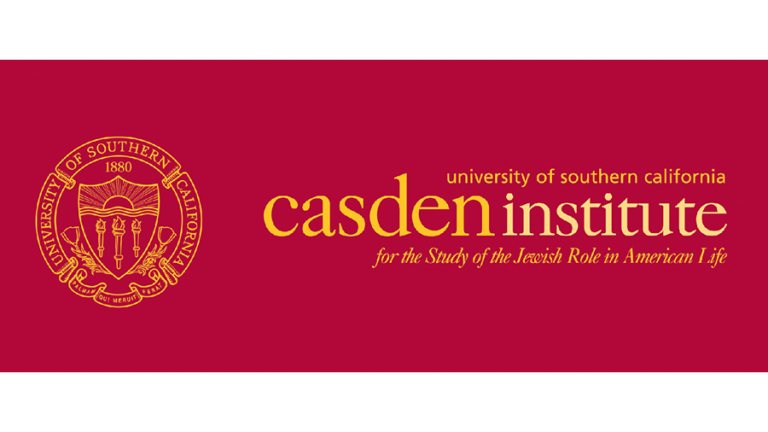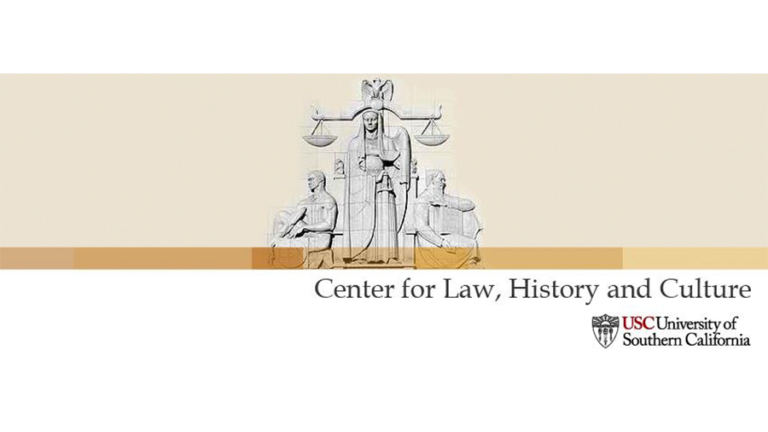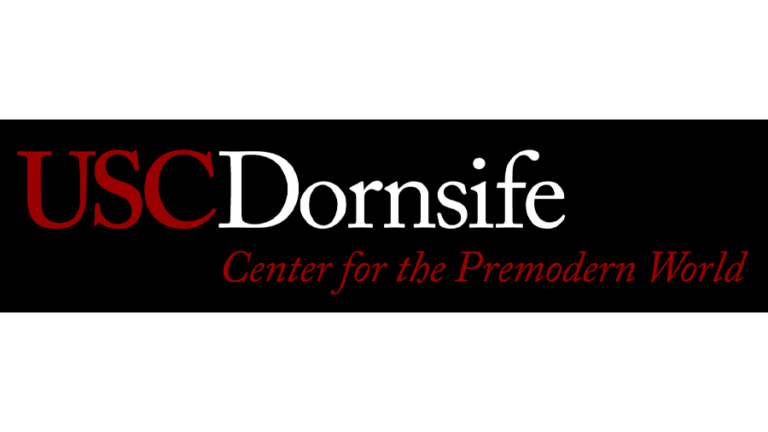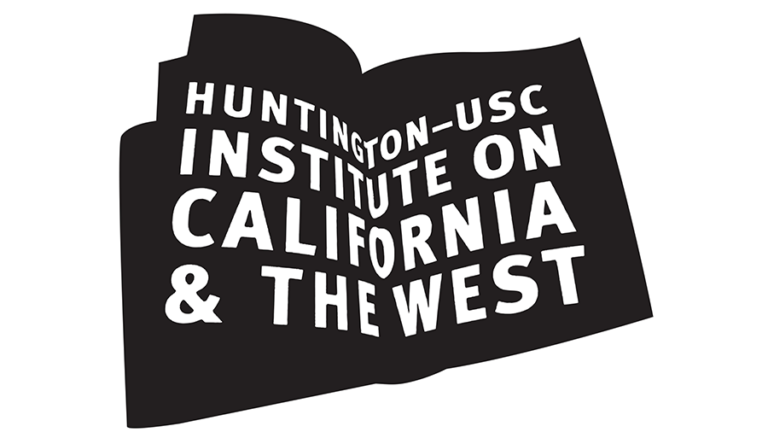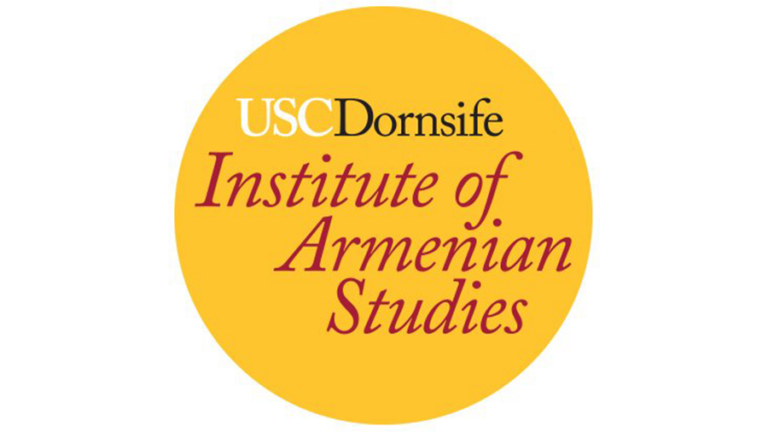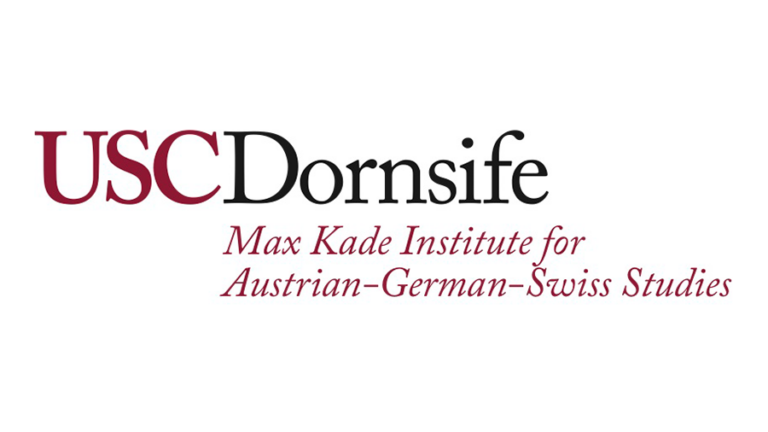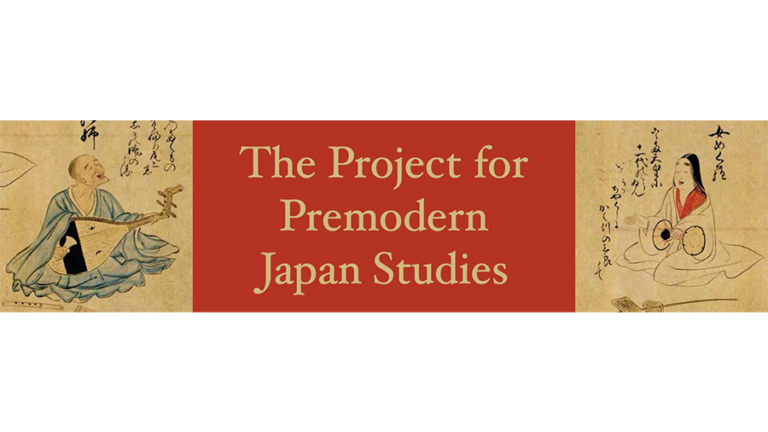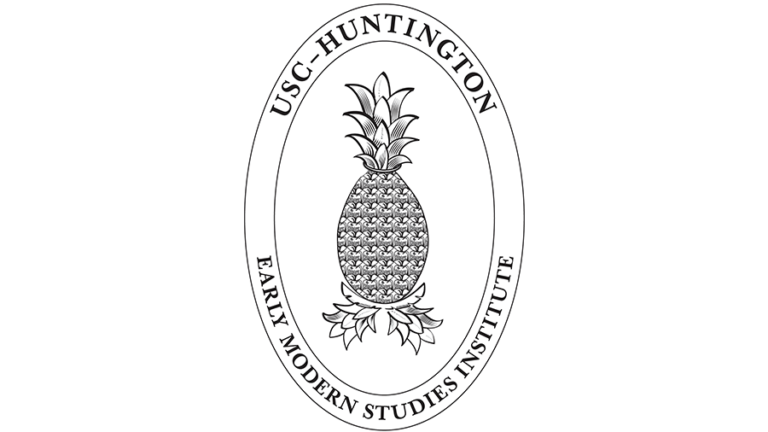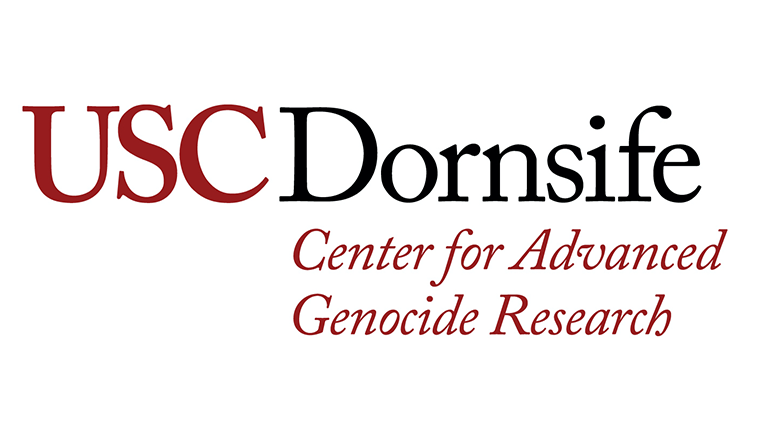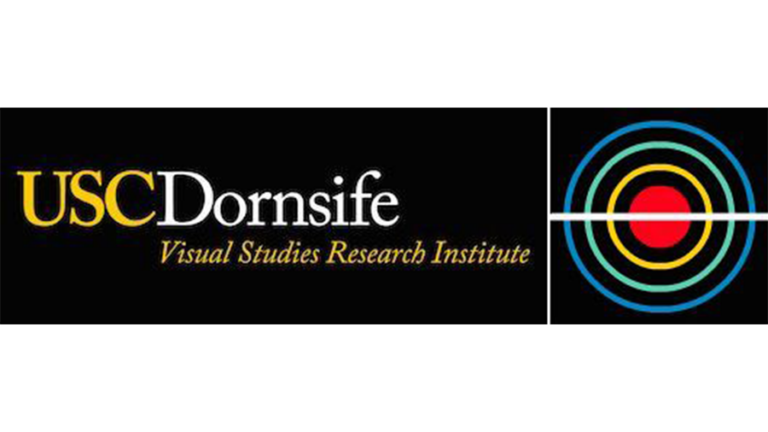Learn more about our affiliated institutes, centers, and programs below. Check back regularly because this list is ever-growing!
The University of Southern California has established the first-ever scholarly institute dedicated to studying contemporary issues of Jewish life in the Western United States. Since 1998, the USC Casden Institute for the Study of the Jewish Role in American Life has been bringing new insight to bear upon the important role played by Jewish people in American Culture, particularly in the West. The Casden Institute explores contemporary issues related to the interface between the Jewish community and the broader, multifaceted cultures that form the nation–issues of relationship as much as of Jewishness itself. It is also enhancing the educational experience for students, exposing them to the problems–and promise–of life in Los Angeles’ ethnically, socially, culturally and economically diverse community.
The University of Southern California’s Center for Law, History and Culture is devoted to encouraging the study of law as an historical and cultural institution. CLHC brings together faculty members from the College of Letters, Arts, and Sciences and faculty from the Law School, sponsoring a wide range of scholarly and cultural activities, including faculty workshops, book talks, seminars, and conferences, as well as programs designed to support students and emerging scholars.
The Center for the Premodern World at USC creates space and offers resources for the study of cultures and civilizations, beginning with the earliest historical eras up to the end of the Middle Ages and the beginning of the modern world. The Center aims to have a truly global reach in terms of areas of research and as such has the potential to involve over forty faculty on campus in its activities. Already it co-sponsors an interdisciplinary research seminar on the Premodern Mediterranean. The director hopes to expand the number of such seminars and also to bring to campus a series of internationally recognized scholars to offer public lectures and to work closely with faculty and graduate students on their own academic projects. The Center also anticipates inaugurating major initiatives in the digital humanities, including collaboration with Doheney Library’s Special Collections Department to increase access to the university’s collections of medieval manuscripts and early printed books. Finally, the Center will seek ways to promote scholarship which is serious and which also has the potential engage a wide, cultural audience. Few symbols of the ancient world are as powerful, haunting, and evocative as the city of Troy. It is both fitting and ironic that USC, a new Troy in the relentlessly modern city of Los Angeles, would create a space for the study of premodern dreams and their enduring legacies.
The Huntington-USC Institute on California and the West is a center for scholarly investigation of the history and culture of California and the American West. Through sponsorship of innovative scholarship and research, ICW draws on the resources of the University of Southern California and The Huntington Library to build an innovative and unique collaboration between a research university and a research library.
The USC Dornsife Institute of Armenian Studies is an international resource that convenes and supports a multidisciplinary community of scholars who probe social, educational, and political challenges impacting Armenian communities and the Republic of Armenia.
The Institute of Armenian Studies promotes research, scholarship and programming that address national and global challenges and seek to contribute to the formulation of policy. The Institute’s focus is post-genocide studies, the Republic of Armenia and the Armenian Diaspora.
The Los Angeles Institute for the Humanities was founded in 1998 to create an intellectual center for our city by bringing together academics and writers, musicians and dancers, curators and critics, journalists and poets. The Institute’s broad purpose is to stimulate a cross-disciplinary exchange of ideas. The bimonthly lunches for fellows explore many of the social, scientific and cultural ideas of the day with a greater variety of experience and intellectual outlook gathered in one room than any given Fellow is likely to experience in the course of his or her daily life.
The Institute aims to be international, urban and inclusive in its outlook, avoiding viewpoints predictably to the right or left. It seeks to integrate intellectual life with the active civic life of the city, as well as to reflect the diversity that is so palpably a hallmark of Southern California as it continues through the twenty-first century.
The Levan Institute for the Humanities serves as a hub for the humanities and humanistic social sciences at the University of Southern California, connecting faculty, postdoctoral fellows, and students across disciplines, departments, programs, and institutes. The Institute complements and coordinates efforts across the humanities, broadly conceived, and develops new initiatives that support research and teaching. The institute’s activities include event series with visiting and local scholars, working groups, career mentorship, and the promotion of humanities work at USC.
The USC Dornsife Max Kade Institute for Austrian-German-Swiss Studies is a research center devoted to German and European studies. Located several blocks north of the USC campus, the institute hosts lectures, conferences, and performances for students, faculty and the general public. Institute programs cover German and European studies broadly defined, but its main areas of emphasis include: exile studies, Cold War studies; German history, film, and aesthetics; and contemporary German and European affairs.
The Project for Premodern Japan Studies of the USC College was established in 2003 to nurture and coordinate the study of premodern Japan at USC. Under Director Joan R. Piggott, Gordon L. MacDonald Professor of History, the mission of the Project is to build a premier program and a thriving community of scholars working in the premodern Japan field at USC. The priorities of the Project include the recruitment of leading faculty and graduate students in the field to multiple disciplines across the university. The Project serves as a center for the organization of the Summer Kambun Workshop; the development of a world-class premodern Japan research collection in USC’s East Asian Library; the coordination of a vibrant Visitor Series that includes speakers, workshops, and conferences; and a new Monograph Series under the USC College East Asia Studies Center imprint. Through the Graduate College and History Department the Project also provides fellowships for graduate study in premodern Japanese History.
The USC-Huntington Early Modern Studies Institute supports advanced research and scholarship on human societies between 1450 and 1850. The Institute’s range is global. Unlike existing centers that focus on particular regions, EMSI aims to advance knowledge of the diverse societies in and around the Atlantic and Pacific basins.
The USC Dornsife Center for Advanced Genocide Research views Holocaust and Genocide Studies as inherently interdisciplinary. This means not solely various disciplines working together, but rather the transcendence of disciplines to produce innovative insights.
The Center also distinguishes itself from other Holocaust and Genocide centers through its focus on currently under-researched areas, including resistance to genocide, digital genocide studies, and violence, emotion and and human behavior.
CAGR organizes a lively academic program with annual international conferences and a rich fellowship program. USC students, visiting scholars and CAGR fellows can take advantage of the vast and unique resources held at the University of Southern California.
Those resources include the Visual History Archive with over 55,000 survivor testimonies of the Holocaust and other genocides as well as the 30,000 volumes of the Holocaust and Genocide Studies collection.
The founding director of the USC Dornsife Center for Advanced Genocide Research is Wolf Gruner, Shapell-Guerin Chair in Jewish Studies and Professor of History.
Funded through Dornsife College’s 20/20 Program, an initiative established to encourage faculty to work across existing departments and programs to identify research problems of great social relevance and importance in the years to come and building on the success of the Visual Studies Graduate Certificate, the Visual Studies Research Institute focuses on the nature, analysis and evaluation of visual evidence in order to interrogate the relationship of seeing, believing, and proving from Antiquity to the present.
